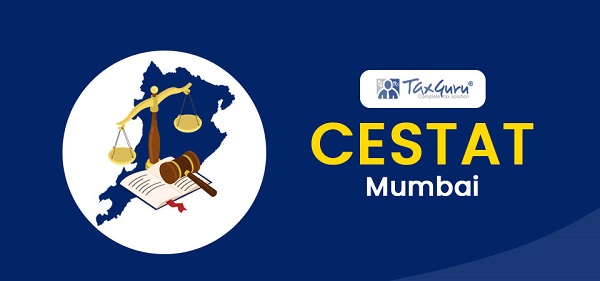G S Rao

Introduction: Corporate Social Responsibility (CSR) is attracting the attention of every Company and stakeholders. CSR activities are not new but it has been recently the mostly discussed or debated topic for the reason that companies Act has made it mandatory for certain companies to spend 2% of average net profits of 3 preceding financial years. Many companies consider CSR activities as philanthropic act towards society and do not want the Government to exert pressure on them to spend compulsorily 2% of average net profits of preceding 3 financial years. Finally Section 135 of Companies Act, 2013 (CA, 2013) and new CSR rules have been notified by the Ministry of Corporate affairs for implementation. This Article analyses the provisions of Section 135 and new rules framed under the CA 2013.
What is Corporate Social Responsibility (CSR)?
Before we analyse the implication of relevant Section and Rules, let us understand how business enterprises and common people perceive CSR activities.
Companies generally consider CSR activities as philanthropic activities. However some companies with long term vision have realized that if they want to survive or want sustainability in the long run, they have to adopt themselves to play an active role to contribute for the welfare of its all stakeholders and particularly society around it. This vision prompted companies to run their business to produce an overall positive impact on society on a continuous basis by contributing for the economic development and betterment of quality of life of all stakeholders.
Community around the company expects employment, development of infrastructure, care for the environment, educational institutions and other developmental activities from the companies operating around them. Beneficiaries of CSR activities develop a positive attitude towards the companies and help in promoting the brand value or goodwill of the philanthropic companies.
Companies Act,1956 and CSR :
Prior to coming into existence of new Companies Act, many companies have been spending monies in a limited way on CSR activities by contributing to Trusts/ charitable organizations which run for the good of the society. Companies have been using Section 293(1) (e) of the Old Act, 1956 so far for making contributions for charitable activities.
Companies Act, 2013 and CSR
Section 135 of the New Act deals with mandatory CSR provisions. This Section will come into force w.e.f. 01.04.2013 as per notification dated 27th February,2014 issued by the Central government. Draft CSR Rules have been displayed for comments from public, professional bodies such as ICAI, ICSI and ICWA. After considering the suggestions from various quarters, these rules have been published by notification dated 27th Feb, 2014 to come into force from 01.04.2014. Let us see what the section mandates;
Section 135 states that compliance of CSR is mandatory, if company( whether private or public ) meets any one of the following criteria
-Net worth of Rs.500 crore or more, or
-Turnover of Rs.1000 crore or more or
-Net profit of Rs.5 crore or more during any financial year.
The CSR requirements to be complied with can be summarized as follows:-
a) Companies which meet the criteria (any one of 3) as mentioned above are required to constitute a CSR committee with 3 or more directors (at least one of them to be independent director).
b) The functions of CSR Committee are as follows:-
– It shall formulate a CSR Policy and recommend to board and indicate CSR activities mentioned in Schedule VII for implementing.
– It shall recommend to the Board, amount of expenditure to be spent for identified CSR activities and
– Monitor the CSR policy and review it from time to time.
c) Responsibility of the Board:
– The Board of directors of company must approve the CSR policy recommended by CSR committee and disclose the same in the Directors report.
– Further it should ensure that the CSR policy is displayed on the company’s web site in such manner as may be prescribed.
– It should ensure that the company spends at least 2% of the average net profits made during the 3 financial years immediately preceding in pursuance of the policy(net profits to be calculated as per Section 198)
– While spending the committed CSR funds, preference must be given to local areas around which the company operates.
– If the company fails to spend, the company must specify the reasons for not spending the amount in its Directors report.
– Amount spent on CSR activities must be disclosed by way of note in the profit and loss.
Analysis of New CSR Rules:
A careful reading of the Rules will clarify the following points for due compliance.
a) Applicability: CSR rules will be applicable from 01.04.2014. Every company including holding and subsidiary company and a foreign company{section 2(420} having its branch office or project in India has to comply with CSR provisions, if it fulfils the applicability criteria.
b) Definition of CSR: CSR activities have been defined to include those projects or programs relating to activities specified in Schedule VII but not limited to those. The words “but not limited” has to be read to mean the expandable activities specified in Schedule VII but it can not be interpreted as discretion given to companies to choose any activities other than those listed in Schedule VII.
c) CSR activities: Schedule VII lists out CSR activities, such as eradicating hunger and poverty, promotion of education and employment, lively hood enhancement projects, promoting gender equality, women empowerment, hostels for women and orphans, old age homes, day care, environmental sustainability, protection of flora and fauna, contributions to PM relief fund, measures to benefit armed forces veterans, war widows and dependants, promotion of sports, and rural development projects.
d) Basis for calculation of Net profit: Rules clarify that the net profit for determining mandatory spend of 2% has be calculated as per the requirements of Section 198 of the Act. However profits from overseas branches are to be excluded and so also any dividends received from companies which comply with CSR provisions
e) Options for implementation: Companies have been given free hand to choose and implement CSR activities as per its policies decided by its board
– either directly or through Trusts/Societies or section 8 companies (entities) operating in India and set up by it
– Companies have also option to take up CSR activities through entities specified above but not set up by it. The condition is that these entities must have an established track record of at least 3 years in the line. However monitoring of these activities by company is mandatory.
– Companies can also collaborate with other companies in their CSR projects but those companies’ committees must report CSR activities CSR as per Rules.
f) Exclusions/Restrictions:
Following are the restrictions :-
- Programs or activities undertaken exclusively for employees or their families shall not be considered as CSR
- Any contributions made to political parties u/s 182 of CA,2013 shall not be given credit
- Projects or activities undertaken in India will only be given credit or counted for the purpose of mandatory spend limit
- Companies are allowed to spend up to 5% of total spend in any financial year to build capacities of their own CSR personnel or the agencies through whom CSR activities are undertaken
g) Constitution of CSR committee: Listed public Ltd companies must have at least 3 directors on the committee, of which at least one director must be an independent director. Unlisted companies and private companies are exempt from the requirement to have presence of one independent director and can operate with 2 directors. This is welcome measure.
h) CSR expenditure: Any expenditure to be considered as CSR activities has to be as per the policy approved by the Board and those activities must be within the ambit of Schedule VII activities . The expenditure can be towards corpus or could be revenue in nature.
i) CSR reporting: The Board’s report of a company shall annex a report on CSR activities undertaken during the year as per format provided in the Rules. This requirement is applicable on or after the financial year 2014-15.
j) Format: Prescribed Format is designed to give information such as CSR policy of the company, constitution of committee, Mandatory amount to be spent on CSR, details of amount spent and reasons for any unspent amount.
k) Display of information on web site: Companies must display their CSR polices and information on CSR activities as per particulars in format
Road ahead :
Now that Rules are framed, companies have a clear directions for complying with the CSR provisions. The coming financial year being the first year, many clarification are expected from the Ministry of Corporate affairs. Even when the voluntary guidelines are introduced, it is noticed that many companies have been taking CSR activities very seriously since it builds a good will and increases its brand value.
Areas of concern: There is a concern whether the amounts spent on CSR will be allowed as business expenditure under Income Tax Act. Section 37(1) Income tax Act,1961 allows business expenditure, if it is wholly and exclusively for business or nexus can be shown between the expenditure and its business. Certain corpus payments whether qualify for deduction or not is doubtful. Clarifications from ministry of finance should come fast so that many Companies will come forward to spend voluntarily, if such income tax deductions/ exemptions are allowed. It is not clear whether failure to spend mandatory 2% percentage of average net profits will be treated as violation and penalty will be levied. May be in the initial years, MCA may go soft for non compliance of Section 135 or rules framed thereunder.
Section 135 is applicable from the financial year 2014-15 and so also the rules. The meaning of “during any financial year” used in Section 135(1) for applicability has to be given a cogent interpretation.
For eg. if a company is to examine applicability of CSR provisions during the FY 2014-15, it has to be an audited Financial year preceding the year 2014-15, i.e FY 2013-14. This is for the reason that the company can not ascertain its net worth or Turnover or net profit for the FY 2014-15 until it comes to an end. But CSR Committee has to formed in the year 2014-15 as CSR provisions are made applicable from this year and CSR committee has to frame and recommend to board CSR policy and ensure its implementation with the earmarked funds. For determining the mandatory spend, 2% of average net profits made during preceding 3 years from 2014-15 have to be considered i.e FYs 2011-12,2012-13 and 2013-14
Every financial year after 2013-14 has to be seen in the same manner for ascertaining applicability.
Conclusion:
Although there is resentment about mandatory spend, many big companies have voluntarily complied with the requirement and smaller companies will follow the path gradually. If there is a will, companies can play a vital role in changing the lives of many people living around it.
Source: Companies Act, 2013, Notifications dated 27.02.14 issued by MCA on Rules and Section 135
Disclaimer: This article contains interpretation of the Act, Rules and personal views of the author are based on such interpretation. Readers are advised either to cross check the views of the author with the Act or seek the expert’s views if they want to rely on contents of this article.
Author- G S Rao, Deputy General Manager (Legal) OCL India Limited, Email – gsrao@ocl.in



















